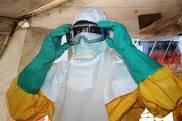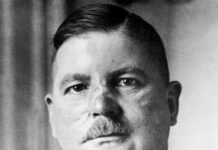Since the first patient died of Ebola on U.S. soil, nurses and doctors have been on the front lines of treating this deadly virus.

But it took the virus’ unfortunate spread to Nina Pham, a nurse attending the stricken Ebola patient, to shake up the protocol and alert the nation that there were problems in the way Texas Health Presbyterian Hospital in Dallas, as well as the Center for Disease Control (CDC), were trained to limit the virus’ spread.
Granted this is a new virus, which has not been treated at U.S hospitals. But the hospital-medical culture, as well as the spread of the virus itself, should both come under public scrutiny since they both had a role in how nurses were trained to limit virus contamination.
While the Congress holds hearing on Ebola and puts the CDC director Thomas Frieden under the hot lights of public interrogation, the public should take note that it was the nurse’s union, National Nurses United, and the actions of a single registered nurse, Briana Aguirre, at Texas Health Presbyterian Hospital in Dallas, who deserves credit for immediately focusing attention on deficiencies in the protocol and called for improving rules to isolate the virus’ spread.
The union’s first role is to protect its member (the nurses), but they also simultaneously protect the general public.
Plain talk by the NNU is also refreshing. In a MSNBC report (Oct. 15, 2014) NNU officer RoseAnne DeMoro said the CDC and Texas Health Presbyterian Hospital in Dallas “lied to” nurses and told them protocols which were incorrect. When the NNU wrote to the White House and the CDC to express their concerns, the NNU said they were ignored.
However, the fact the nurse’s union has the ability to bypass the local and national medical-hospital establishment is important since that is how these deficiencies attracted national attention. Anti-labor critics should also be silenced since they should recognize that the NNU is concerned about their member’s health, as well as protecting the public. This is a great position for labor unions: on this particular issue it is check-mate for anti-labor activists on the right who distrust all forms of organized labor.
Breaking the Hospital Mystique and Stopping Medicare Fraud
 As anyone who has every accompanied a loved one or friend to a hospital knows, the medical-hospital authorities do not take criticism or suggestions well. Acting alone, nurses have discovered that they face being fired or stigmatized for openly criticizing doctor or hospital practices even when they endanger a patient. Unfortunately, this happens every day as evidenced in the number of malpractice lawsuits and hospital settlements.
As anyone who has every accompanied a loved one or friend to a hospital knows, the medical-hospital authorities do not take criticism or suggestions well. Acting alone, nurses have discovered that they face being fired or stigmatized for openly criticizing doctor or hospital practices even when they endanger a patient. Unfortunately, this happens every day as evidenced in the number of malpractice lawsuits and hospital settlements.
So when the nurse’s union publicly called for the need to improve virus handling protocols and said hospitals which employed nurses treating Ebola patients were deficient in their educational efforts, it was a bold move which is not used more to protect the public about errant hospital and doctor practices that occur daily and have nothing to do with Ebola.
Nurses are on the front lines on medical administration and more experienced nurses are very knowledgeable about what is needed and not needed when it comes to medical treatment in hospitals.
Unfortunately, too many nurses cannot speak directly to patients and their families when they see bad medical practices and unnecessary test being done on unsuspecting, ill patients, many of who are not aware of where they are, let alone what is being done to them and for what purpose.
This occurs because the hospital-medical culture, by design and evolution, intimidates patients and their families into putting their total trust into the hospital and its doctor staff. In too many cases, this trust is violated by both.
Enter the importance of nurses. From my experience, I have asked both doctors and nurses treating my family about a certain procedure or test. In some cases, especially when a patient is in intensive care, I got two different answers. A doctor would say a test was essential, while a nurse would secretively tell me it was invasive, painful and unnecessary. My observation is that the two answers have a lot to do with whether insurance or Medicare is involved, and not about the health and well-being of the patient.
The NNU’s public statements about the need for better Ebola education to their members should also be extended so they become more outspoken about the financial waste and unnecessary treatments they see at the nation’s hospitals. Since nurses are on the front lines of patient treatment, they have the ability to document unnecessary surgery and tests, which doctors are ordering and how hospital administrations are often allowing these mis-practices because some doctors and hospitals are the ultimate financial beneficiaries of medical fraud.
Fraud is Big Business
Medicare fraud is a $48 billion business (estimated by the Office of Management and Budget) in 2010 and is a critical element of many hospital’s and doctor’s income. While beneficial to a selfish and criminal few, it is dangerous to many.
Patients suffer unnecessary pain and suffering. I have been told by a few surgeons that they would never allow a loved one to enter any hospital for surgery or be in intensive care without a loved one being present 24 hours a day in their room. The reason: unnecessary tests are administered 24 hours a day, seven days a week, often to patients who are comatose or too sedated to know here they are or what is happening. Lab techs and nurses who administer the tests may or may not know the tests are not needed, but more importantly, the hospital culture says that if they criticize the order they risk losing their jobs.
This may explain why one woman I spoke with said her husband, who was declared brain dead due to a stroke, but was put on life-support equipment, was give four more brain scans before he died. The wife told me it was totally unnecessary and done without their knowledge since they were not in his room 24 hours a day. They only discovered it when they received their Medicare bill months later.
Medicare and insurance fraud costs policyholders and taxpayers about $48 billion in 2010 out of $600 billion spent in that same year. This fraud (involving medical, pharmaceutical and therapy services) raises insurance premiums for more ethical doctors who seriously accept their oath of “do no harm.”
Moreover, federal officials who supervise Medicare should encourage nurses to come forward with their observation. Or, the nurse themselves should be encouraged to report their observations to union headquarters or the Government Accountability Project, (202) 457-0034.
So the American public should thank the NNU and its activist members, not only for alerting them about deficiencies about Ebola, but for having the backbone to stand up to medical administrators and doctors who have failed to set up the needed treatment regimes. The NNU should also become more active in its anti-medical fraud activities by alerting families about how to identify unnecessary invasive tests and surgeries and how to file formal complaints against doctors and hospitals
This will make the nurses and NNU great examples of the idealized medical standard “do no harm.”










